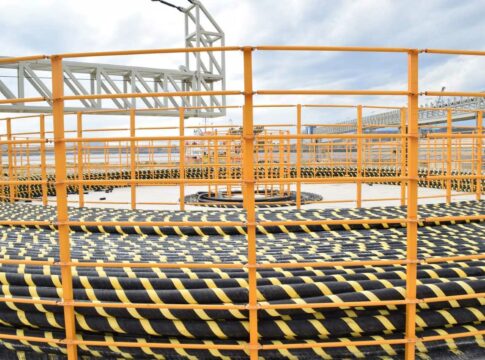On June 28 the banks are expected to have completed the submission of data required for the next round of stress tests and according to bank sources there are high expectations that the European banking authorities (EBA, ECB) will reduce the minimum capital requirement ratio for the 4 systemic banks by at least 25 basis points, thus releasing more resources for the Greek banking system.
This will happen for a number of reasons including the high interest income of the credit institutions which is considered as an increase in operations, the profitability they achieved mainly in 2022 -the tests are done based on data on 31.12.2022- but also the profit outlook for 2023 (estimates for 800 – 1.0 billion euros for each bank), the reduction of NPEs and the avoidance of creating new ones, and lower risks such as in the real estate market, a sector which in Greece is still well performing.
Banks have concluded the last round of negotiations with the ECB and are awaiting for ECB comments in order to submit their data by the end of the month. The stress tests will start and will be completed by the end of July when their results are announced.
What will happen in SREP?
It should be considered almost certain that all the banks participating in the stress tests will easily and successfully pass the worst-case scenario.
If it goes as planned, the supervisors will assess the risks faced by the banks and check and confirm that they are in a position to manage them effectively.
In the specific activity, the Supervisory Review and Evaluation Process (SREP) that follows the tests, decisions are made regarding the necessary supervisory measures. Therefore, it is estimated that decisions on the minimum total capital adequacy ratios of Greek banks will be made at this point.
The differences with Europe
In the current phase, these indicators are set for all 4 systemic banks at 14.5%. It is worth noting that in the previous assessment the supervisory authorities had initially reduced Eurobank’s claim by 2 percentage points, which they subsequently increased accordingly due to the bank’s operations abroad. As banking sources reported, the requirement for Pillar 2 (Pillar 2 Requirement) is 2% in European banks and 3% in Greece. The Pillar 2 Requirement (P2R) is a specific capital requirement for each bank, which applies in addition to the minimum capital requirement (known as Pillar 1) which is believed to understate or not cover certain risks.
As the Greek banks are gradually aligning their performance with other European banks, it is considered that they have the possibility to achieve a reduction in the capital requirements of the authorities.
Of course, it should be noted that the reduction of capital requirements may also occur for other European banks, the sources added.
Capital resources
According to analysts, it is important where the Greek banks that did not pay a dividend for the 2022 fiscal year but are expected to achieve further capital savings if the aforementioned estimates are met will channel these resources.
Channeling resources through loans to the real economy is considered important in order to enhance growth as well as other investments that can yield significant benefits to banks’ portfolios.














